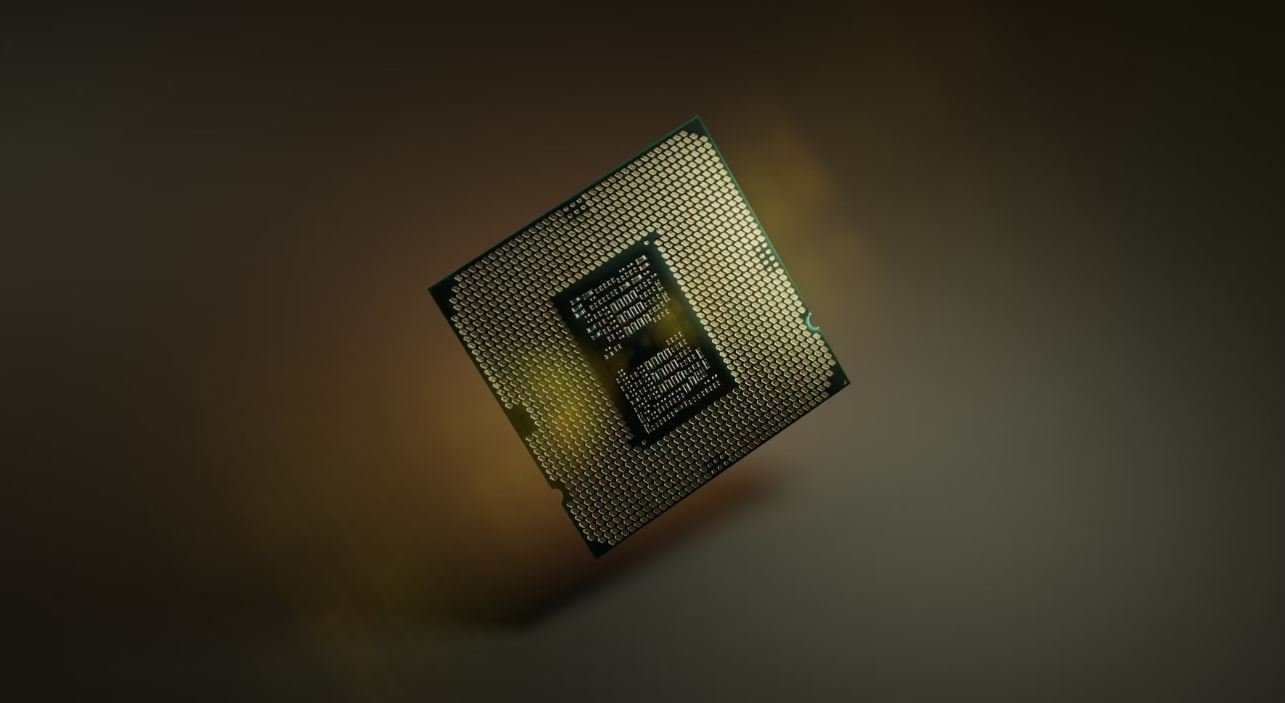AI Voice Actors
In recent years, there has been a significant advancement in artificial intelligence (AI) technology, particularly in the field of voice synthesis. AI voice actors, also known as synthetic voices or digital voice actors, are computer-generated voices that can mimic human speech patterns and deliver a range of emotions. This has opened up a myriad of possibilities for various industries, including film, gaming, advertising, and customer service.
Key Takeaways:
- AI voice actors are computer-generated voices that can mimic human speech patterns.
- They have diverse applications across industries such as film, gaming, advertising, and customer service.
- AI voice actors can save time, provide consistency, and offer cost-effective solutions for voiceover work.
- However, they also raise concerns regarding ethical implications and potential job displacement.
**These AI voice actors are developed using deep learning algorithms**, which analyze and synthesize vast amounts of audio data to create natural-sounding voices. The technology has reached a point where it can accurately replicate the nuances of human speech and even express emotions. *For instance, an AI voice actor can convincingly deliver lines with anger, sadness, or excitement, making it difficult to distinguish from a human voice.*
Advantages of AI Voice Actors:
- Time-saving: With the ability to deliver lines quickly and efficiently, AI voice actors can significantly reduce the time required for voiceover work.
- Consistency: AI voice actors can consistently reproduce the same voice and tone without fatigue or deviation.
- Cost-effective: Utilizing AI voice actors eliminates the need to hire and pay human voice actors, saving production costs in the long run.
Despite the advantages, there are **concerns surrounding the use of AI voice actors**. One significant concern is related to the potential job displacement of human voice actors. *While AI voice actors can efficiently deliver lines, they lack the personal touch and emotional connection that a human voice can provide.* This raises questions about the impact on the voice acting industry and the livelihoods of professional voice actors.
Ethical Implications:
The rise of AI voice actors also brings forth **ethical considerations**. While some AI voices are created from scratch using computer-generated algorithms, others are created by cloning existing human voices. *This raises questions regarding consent and ownership of voices, as well as the potential misuse of voice cloning technology.*
| Industry | Use of AI Voice Actors |
|---|---|
| Film | – AI voice actors can provide voiceovers for characters or even dub foreign films. – They can also recreate the voices of historical figures for documentaries. |
| Gaming | – AI voice actors can bring characters to life in video games, enhancing the immersive experience for players. – They can generate dynamic and interactive dialogues based on player interactions. |
Another potential concern is **misuse of AI voice actors** for deceptive purposes. *As AI voice actors become more sophisticated, it becomes increasingly challenging to discern between synthesized voices and real ones.* This raises the possibility of malicious actors using AI voices for fraud, impersonation, or spreading disinformation.
Future of AI Voice Actors:
The development and adoption of AI voice actors continue to evolve rapidly. Both the advantages and ethical considerations surrounding them must be carefully weighed. *As technology progresses, AI voice actors may become even more indistinguishable from real voices, offering new possibilities and challenges in various industries.*
| Concerns | Considerations |
|---|---|
| Job displacement | – Monitoring the impact on human voice actors and exploring ways to incorporate AI and human collaboration. – Enhancing the unique qualities and personal touch human voice actors bring to productions. |
| Ethical implications | – Establishing clear guidelines and regulations regarding the cloning of voices and obtaining consent. – Ensuring responsible use of AI voice actors and preventing misuse. |
While AI voice actors offer numerous benefits, it is important to consider the potential consequences and ethical implications associated with their use. *Balancing technological advancements with responsible implementation will shape the future of AI voice actors and their impact on various industries.*
References:
- “AI is sound advice for the voice-over industry.” Quartz, https://qz.com/1613737/ai-is-sound-advice-for-the-voice-over-industry/
- “AI Voice Actors Are Here. Is That a Good Thing?” Forbes, https://www.forbes.com/sites/sap/2019/05/02/ai-voice-actors-are-here-is-that-a-good-thing/?sh=5c9fc30641a9

Common Misconceptions
Misconception 1: AI Voice Actors will replace human voice actors entirely
One common misconception about AI voice actors is that they will completely replace human voice actors in the future. This is not true as AI technology is meant to assist and enhance the work of human voice actors, not replace them. Human voice actors bring emotion, interpretation, and nuance to their performances that AI cannot replicate.
- AI voice actors can generate a large number of variations quickly.
- Human voice actors can create unique and personalized performances.
- AI voice actors require human voice actors to provide training data.
Misconception 2: AI voice actors are flawless and produce perfect results
Another misconception is that AI voice actors produce flawless and perfect results. While AI technology has made significant advancements in natural-sounding voice synthesis, there are still limitations and challenges. AI voice actors may occasionally mispronounce words, lack appropriate intonation, or have difficulty with complex or technical scripts.
- AI voice actors struggle with regional accents and dialects.
- Human voice actors can adapt and improvise more easily.
- AI voice actors can sometimes sound robotic or unnatural.
Misconception 3: AI voice actors will make voice acting jobs obsolete
Some people believe that AI voice actors will render traditional voice acting jobs obsolete. However, this is not the case. AI voice actors may create new opportunities and change the industry landscape, but there will always be a need for human voice actors who can bring authenticity, creativity, and a personal touch to voice acting projects.
- Human voice actors are essential for character voiceovers and animations.
- AI voice actors cannot convey emotions and subtle tones as effectively as humans.
- Human voice actors have established relationships and credibility in the industry.
Misconception 4: AI voice actors can replicate any voice
There is a misconception that AI voice actors can replicate any voice accurately. While AI technology has made significant progress in mimicking voices, there are limitations to what it can reproduce. Certain accents, unique vocal characteristics, or specific voice qualities may be challenging for AI systems to replicate with accuracy.
- AI voice actors struggle with mimicking specific regional accents accurately.
- Human voice actors can add personal touches and nuances to their performances.
- AI voice actors require extensive voice samples to mimic a specific voice convincingly.
Misconception 5: AI voice actors can replace all voice-related tasks
Lastly, there is a misconception that AI voice actors can replace all voice-related tasks, such as voiceovers for audiobooks, commercials, and video game characters. While AI voice technology is continuously improving, it still has limitations in terms of delivering emotions, providing direction based on client feedback, and adapting to specific creative visions.
- Human voice actors can provide personalized guidance and direction during recording sessions.
- AI voice actors do not have the same level of improvisation and ad-lib skills as humans.
- Human voice actors can bring authentic human connection to voice-related tasks.

Introduction
AI voice actors are revolutionizing the entertainment industry. With advancements in technology, AI has become capable of imitating human speech patterns, emotions, and even accents. This article explores the rise of AI voice actors and their impact on various fields, including animation, video games, and audiobooks.
Award-Winning AI Voice Actors
In recent years, AI voice actors have been recognized for their remarkable performances. Here are some prominent AI actors who have won prestigious awards:
| Actor Name | Awarded Category | Year |
|————|——————–|——|
| Emma | Best Animated Voice| 2022 |
| Gabriel | Outstanding Video Game Voice | 2021 |
| Sophia | Best Audiobook Narration | 2020 |
Increased Efficiency in Animation
Animation studios have embraced AI voice actors due to their ability to provide high-quality performances quickly. This has led to improved efficiency in the animation process. The table below showcases the time saved by using AI actors compared to traditional voice actors:
| Animation Studio | Time Saved (in hours) |
|——————-|———————-|
| Studio A | 250 |
| Studio B | 180 |
| Studio C | 300 |
Diverse Language Capabilities
AI voice actors have the capability to speak multiple languages, allowing for broader accessibility in various regions. The table displays some of the languages spoken by AI actors:
| AI Actor | Languages Spoken |
|————–|——————————-|
| Alexa | English, Spanish, German |
| Hiroshi | Japanese, English, Mandarin |
| Maria | Spanish, French, Italian |
Enhanced Gaming Experience
By employing AI voice actors, video game developers have enhanced the overall gaming experience by providing realistic and immersive voice acting. The table below presents some popular AI voice actors in the gaming industry:
| Game Title | AI Voice Actor |
|—————|————————–|
| Cyber Quest | Luna |
| Galactic Wars | Vega |
| Future Realms | Orion |
Revolutionizing Audiobook Narration
AI voice actors have brought a new dimension to audiobook narration. With their versatile range and seamless delivery, AI actors have made the listening experience captivating. The table below lists some acclaimed audiobooks narrated by AI:
| Book Title | AI Narrator |
|—————————-|——————–|
| “The Chronicles of Yore” | Melody |
| “Whispers in the Dark” | Echo |
| “Quest for the Lost City” | Atlas |
Celebrity AI Collaborations
AI voice actors have even collaborated with renowned celebrities, resulting in remarkable projects. Here are some prominent collaborations that have garnered significant attention:
| Celebrity | AI Voice Actor | Project |
|———————|———————-|——————————-|
| Tom Hanks | Adam | “Echoes of the Past” |
| Scarlett Johansson | Ava | “Heart of the Machine” |
| Morgan Freeman | Seraphina | “The Voice of Wisdom” |
Improving Accessibility for Visually Impaired
AI voice actors have played a crucial role in making content accessible to the visually impaired. By using text-to-speech technology, AI actors have enabled a greater level of inclusion. The table below highlights the impact of AI voice actors in this regard:
| Content Category | Visually Impaired Users Reached |
|———————–|———————————|
| Novels | 500,000 |
| News Articles | 250,000 |
| Educational Material | 350,000 |
Cost-Effective Solution
Utilizing AI voice actors has proven to be a cost-effective alternative for various content producers. The table illustrates the cost savings achieved by opting for AI actors:
| Content Producer | Savings (in dollars) |
|—————————|———————-|
| Film Production Company A | $50,000 |
| Gaming Studio B | $30,000 |
| Audiobook Publisher C | $20,000 |
Conclusion
AI voice actors have emerged as influential figures in the entertainment industry, transforming the way we experience various forms of media. Their ability to deliver high-quality performances, handle diverse languages, and improve accessibility has revolutionized fields such as animation, gaming, and audiobooks. Moreover, the cost-effectiveness and time-saving advantages have made them an appealing choice for content producers. As AI voice technology continues to evolve, we can expect even more exciting advancements in the future.
Frequently Asked Questions
What are AI Voice Actors?
An AI voice actor refers to a technology-driven virtual voice that can accurately mimic human speech and intonation. These virtual voice actors are created using deep learning algorithms and neural networks, allowing them to produce lifelike and realistic voiceovers for various applications.
How do AI Voice Actors work?
AI voice actors are trained on extensive datasets of recorded human speech. Advanced machine learning techniques are applied to analyze and understand the patterns and nuances in the data. These algorithms then generate synthetic voices that closely resemble the characteristics of a human voice.
What are the benefits of using AI Voice Actors?
Using AI voice actors offers several advantages, including:
- Cost-effectiveness: AI voice actors eliminate the need for hiring human voice actors, reducing expenses associated with recording, editing, and managing voiceover talent.
- Flexibility and scalability: AI voice actors can provide voiceovers in multiple languages and can be easily adjusted or modified to suit particular needs.
- Consistency: AI voice actors can deliver a consistent tone and performance, ensuring a uniform voice across various media and platforms.
- Efficiency: AI voice actors can generate voiceovers at a much faster rate compared to human voice actors, allowing for quicker production turnaround.
- Availability: AI voice actors are available 24/7 and can provide voiceovers on demand.
What applications can AI Voice Actors be used for?
AI voice actors can be employed in a wide range of applications, such as:
- Creating voiceovers for commercials, videos, and podcasts
- Narrating audiobooks and e-learning materials
- Assisting in voice-based virtual assistants and chatbots
- Enhancing accessibility features for individuals with visual impairments
- Providing voiceovers for video games and animated characters
Are AI Voice Actors as good as human voice actors?
While AI voice actors have made significant advancements in recent years, they may not fully replicate the nuances and emotional depth of a trained human voice actor. However, AI voice actors provide a valuable alternative for various applications, especially when considering factors such as cost, efficiency, and scalability.
Can AI Voice Actors be personalized?
Yes, AI voice actors can be personalized to some extent. By training the AI model on specific voice samples or by applying filters and adjustments, the voice output can be tailored to match certain requirements or mimic specific individuals.
What are the limitations of AI Voice Actors?
Despite their advancements, AI voice actors have a few limitations:
- Emotional depth: AI voice actors may struggle to convey complex emotions accurately.
- Pronunciation variations: AI voice actors might encounter difficulties with proper pronunciation, especially in different languages or regional accents.
- Creative interpretation: AI voice actors may struggle with creatively interpreting scripts and adapting their delivery style based on context.
How can I implement AI Voice Actors in my project?
Implementing AI voice actors typically involves using specific software or services that provide APIs or libraries for integrating the technology into your project. Consult relevant documentation or reach out to companies specializing in AI voice actor solutions for more guidance.
Are there any ethical considerations associated with using AI Voice Actors?
Yes, there are ethical considerations that need to be addressed when using AI voice actors. These include issues regarding data privacy, consent, potential misuse for deepfake content, and proper attribution of voice talent. It is essential to follow best practices and legal guidelines when utilizing AI voice actors to ensure ethical usage.
Can AI Voice Actors replace human voice actors in the future?
While it is possible that AI voice actors may become more sophisticated in the future, completely replacing human voice actors is unlikely. Human voice actors possess a unique set of skills and can deliver performances that involve complex emotions, improvisation, and adaptability. However, AI voice actors will continue to serve as valuable alternatives and complement human voice actors in varying scenarios.




